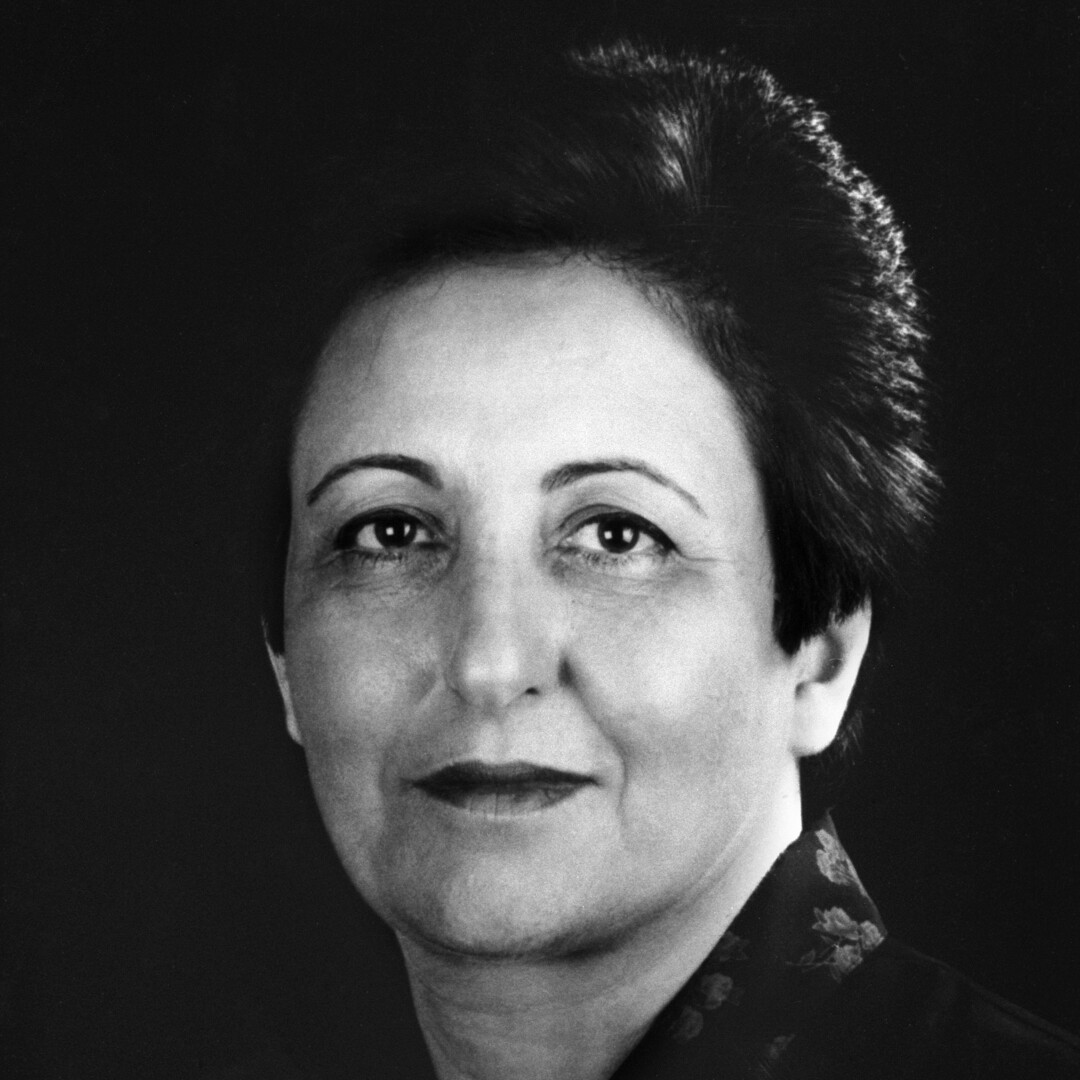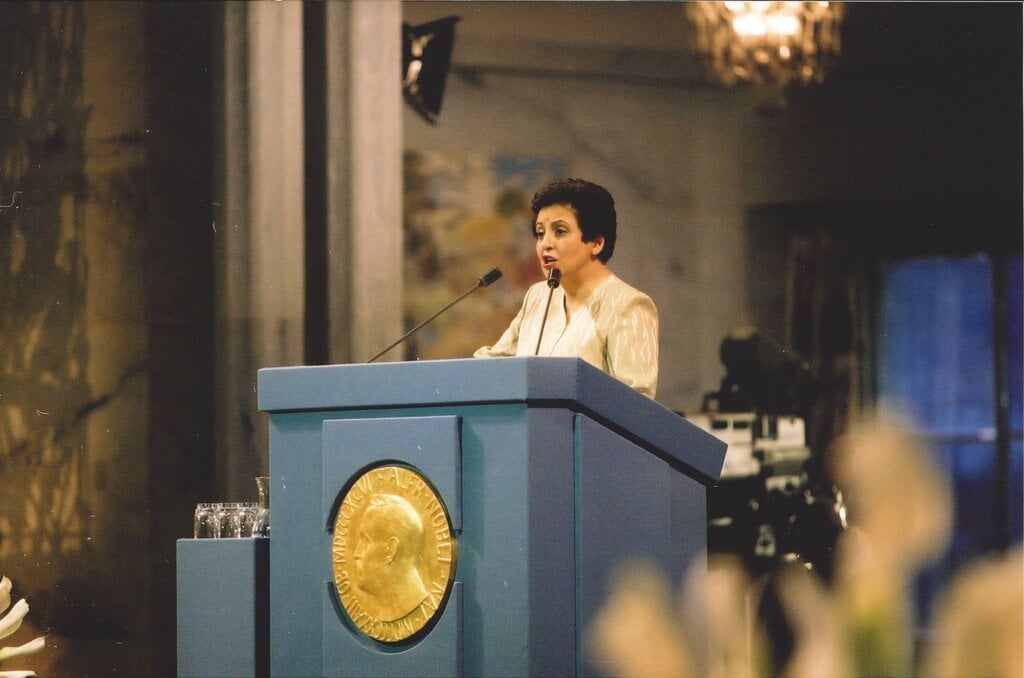Shirin Ebadi
Speed read
Shirin Ebadi was awarded the Nobel Peace Prize for her efforts for democracy and human rights, especially for the rights of women and children.

Full name: Shirin Ebadi
Born: 21 June 1947, Hamadan, Iran
Date awarded: 10 October 2003
The first woman Muslim peace laureate
Shirin Ebadi was one of Iran’s first female judges. Dismissed from her post in 1979 after Khomeini’s revolution, she later opened a private law practice and served as defence council for dissidents. In 2000, she herself was arrested because of her criticism of the regime. Ebadi joined the campaign for fundamental human rights, and women’s and children’s rights in particular. She helped to found organisations that put these issues on the agenda and wrote books suggesting changes to Iranian inheritance and divorce legislation. She also advocated taking political power out of the hands of the clergy and separating religion and state. The Norwegian Nobel Committee’s decision to honour Ebadi reflected a desire to ease tensions between the Islamic world and the West after the terrorist attack on the USA on 11 September 2001. The decision was also a show of support for the Iranian reform movement.
"Shirin Ebadi underlines that the dialogue between different cultures in the world must be founded on values they have in common. There need be no fundamental conflict between Islam and Christianity."
Ole Danbolt Mjøs, Presentation Speech, 10 December 2003.

"Undoubtedly, my selection will be an inspiration to the masses of women who are striving to realize their rights, not only in Iran but throughout the region – rights taken away from them through the passages of history."
Shirin Ebadi, Nobel Prize lecture, 10 December 2003.
Shirin Ebadi – a human rights activist
In 1994, Ebadi co-founded the Association for Support of Children’s Rights. Its aim is to ensure Iran’s compliance with the UN convention on children’s rights, which the Iranian Government signed that same year. Apolitical and independent, the association works to improve children’s nutrition, health and education, and the environment in which they are reared. Ebadi also helped to establish a crisis centre for children and the Human Rights Defence Centre.
| Human rights Rights that apply to all persons regardless of gender, race, ethnicity, religious affiliation or nationality. The most important are the rights enshrined in the UN Declaration of Human Rights, adopted in 1948. |
| UN convention on the rights of the child Adopted in 1959 to give children particular protection so that they can grow up safely, no matter where in the world they live. Children shall be ensured access to food, shelter and education, and shall be protected from participation in child labour. |
"Hardliners who run the judiciary will see it as outsiders now trying to intervene in Iranian politics. It is an embarrassment to them to see someone they have vilified held up as a shining example."
BBC Tehran Correspondent Jim Muir, 10 October 2003.
Jubilation and scepticism
The news that Ebadi had received the Nobel Peace Prize was met with jubilation by the Iranian reform movement and with disapproval by the theocracy. President Khatami feared that the prize would be misused by Iran’s enemies and claimed that “the Nobel Peace Prize was not very important. The ones that count are the Nobel Prizes in science and literature.” One conservative newspaper maintained that the award was meant as an insult to Islamic countries, while another viewed it as part of a Western, anti-religious campaign.
Continued struggle for freedom
After she received the peace prize, Shirin Ebadi continued to defend people who were persecuted by the Iranian regime, but at a cost. In 2008 the authorities closed down Ebadi’s centre for human rights, and when president Mahmoud Ahmadinejad was re-elected the following year, she left for exile in Great Britain. She described the Iranian elections as undemocratic and dissociated herself from the widespread suppression of the opposition. The authorities in Teheran responded by assaulting Ebadi’s husband and confiscating the Nobel Peace Prize medal. They also froze her bank account and accused her of tax evasion.
Learn more
I was born in the city of Hamadan [northwestern Iran] in 1947. My family were academics and practising Muslims. At the time of my birth my father was the head of Hamedan’s Registry Office ...
Disclaimer: Every effort has been made by the publisher to credit organisations and individuals with regard to the supply of photographs. Please notify the publishers regarding corrections.
Nobel Prizes and laureates
Six prizes were awarded for achievements that have conferred the greatest benefit to humankind. The 12 laureates' work and discoveries range from proteins' structures and machine learning to fighting for a world free of nuclear weapons.
See them all presented here.
